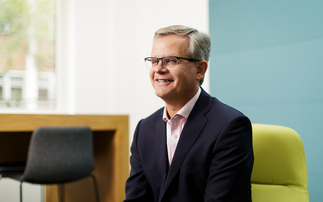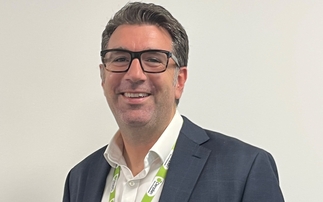Not even the recession is stopping the cash plan market from having above-average sales, writes Paul Robertson
“What we find is that, for small bills, people would in the past perhaps not claim. Now we are seeing claims for far smaller amounts coming in, as well as the larger ones, which is fine by us.”
Cash plans have long been touted as a recession-proof product for the individual. But it seems companies are now seeing these products in a dual role, both as a worker perk at a time when pay rises are few and far between, and as an absence tool.
REAPING REWARDS WITH EAPs
Perhaps due to the influence of intermediaries in this market, employers have come around to the value of the employee assistance programmes (EAP) available with cash plans.
Wood said: “Nowadays, the employers are paying for the cash plan so they want to see people are making use of the physio and fitness benefits to give that healthcare and wellbeing coverage in addition to the core, which is the dental and optical.
“We have all moved towards health and wellbeing, where we are about prevention as well. Typically, ten years ago people paid for a cash plan themselves and most was for dental and optical cover.”
If there is one thing that characterises this market, it is stability in the basic product and that has not really changed, with core benefits remaining.
While most providers are doing well and the market is quite healthy, perhaps there is little perceived need for too much change.
Simplyhealth’s Hughes cautioned: “A cash plan is a cash plan. They may now come bundled with an EAP, but the value of a plan is not really changing. What people want is money back for the core benefits, optical, dental and phyisiotherapy.
“What we wouldn’t want to see is a market where we start adding on frivolous benefits. These are good from a marketing point of view, but not so good for the customer point because they do not get to use them. So, we are quite keen to keep to the core.”
Yet even here, there is a slow movement towards change, if not anything as glamorous as innovation. HSF’s Duff noted a tendency in the market at the moment to narrow the benefit range and to concentrate a bit more on dental and optical. In contrast, HSF’s view is to attempt to broaden the range.
“Things such as alternative treatments have been a lot more popular over recent years,” he said. “But often the reason people join cash plans in the first place is for the likes of dental and optical. A good half of all claims are still dental or optical.”
Yet Izzard, looking at the whole market, commented on an increase in dental benefits, improvements in the attached EAPs and singled out Medicash’s policy, which has differing benefits if it is to pre-fund a private medical insurance (PMI) excess rather than to be used normally.
Of course, the elephant in the room is PMI. There has been a well-documented shift in the use of cash plans to pre-fund excesses on PMI policies taken out in the face of double-digit inflation.
An unforeseen benefit to this movement has been that the corporate cash plans taken out to cover the PMI excess of the top tier of workers is often extended to the general workforce who rarely have access to company paid PMI. The scheme can cover all staff while synergising with the PMI of the top tier.
The question, raised by Simplyhealth’s Hughes in December’s COVER, is if this is sustainable as a pricing model, given that it would result in increased usage both for cash plans and PMI policies.
Health Shield’s Wood believes it is: “Most cash plan providers are not for profit mutuals and as long as we can get that balance between what comes in and what goes out in terms of our long term stability, then it works very well.
“We had actually been doing it for a few years before we thought to start telling people about this as a strategy. This has all been part of the seismic shift from voluntary to company paid. The beauty of targeting the company market is that with voluntary, there is a degree of anti-selection. The beauty of a company paid scheme is that there is no anti-selection and it allows us to give competitive prices.”
Izzard, who as a specialist PMI adviser does a lot of this business, agrees – but with a proviso: “This is sustainable providing you don’t use the same underwriter for both the excess and the PMI plan, we try to never do that. But Medicash taking on the pre-funding of a Bupa policy, for example, is a good idea. “This is good for the market, as it makes the cake bigger and is, to an extent, self-perpetuating.”
So in summary, cash plans seem to be recession-proof, some PMI policies are under pressure, but cash plans should continue to grow in the group market.
Izzard commends the sector, which would seem to have growth, sustainability and profit, to other IFAs, believing they are “missing a trick”.
“It’s a no-brainer for a client to have a group plan. Cash plans are a bit boring and predictable, but I like them.” Quite.











